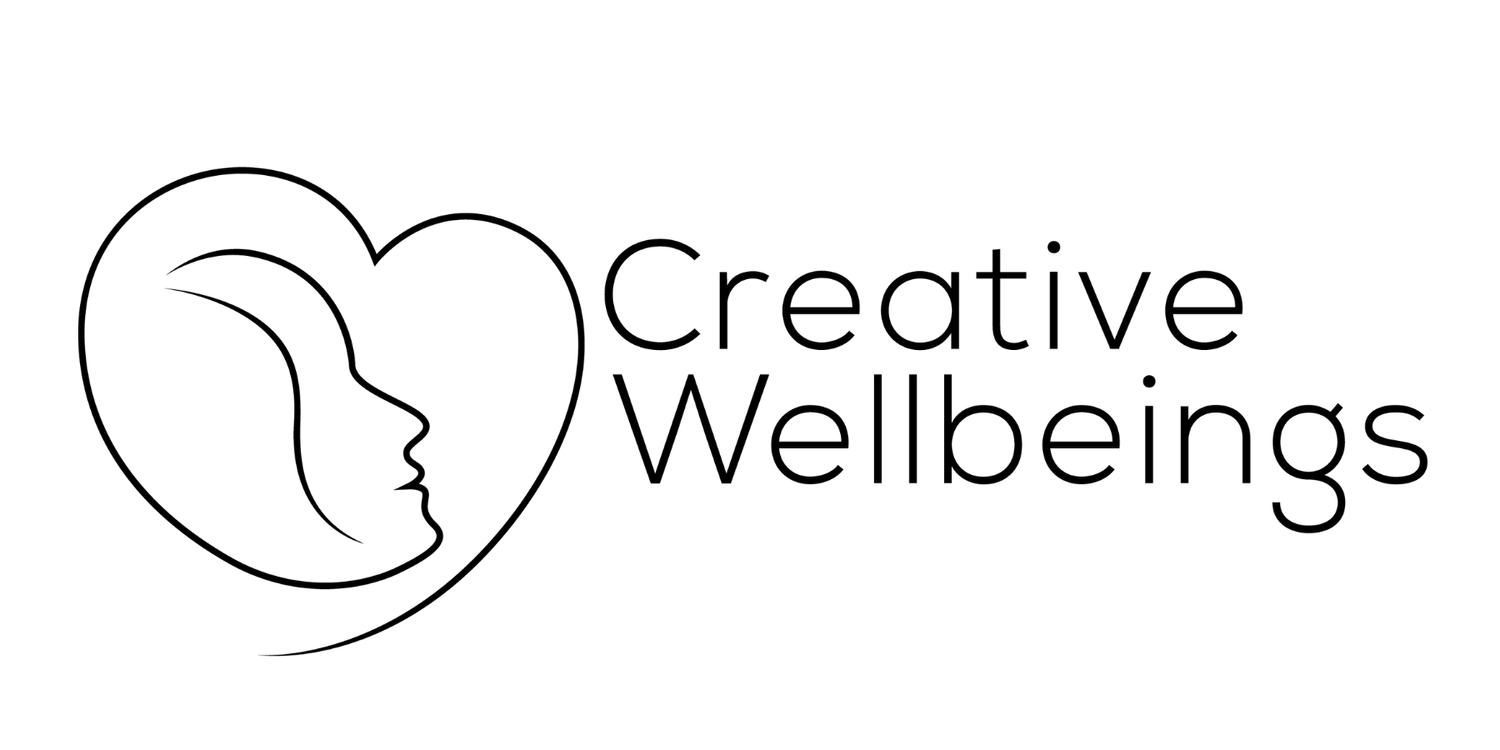Services Offered

Individual Therapy
Everyone has their own story and journey of how they got here. Sometimes we can get stuck in our exploration and may need a little help. Seeking help is one way you can empower yourself and show strength and resiliency on your path. You deserve to prioritize yourself, your mental health, and your wellbeing through creative processing.
Relationship Therapy
Sometimes we need a little help, whether that’s individually or with our loved ones. With individual therapy, you can explore sexual health, trauma, & improve your confidence. With relational therapy, explore your attachment, re-discover desire, and learn how to respectfully create, maintain, and repair relationships that last for a lifetime.
Workshops & Groups
Going through a time of learning and transition can be more impactful when journeying with others. Groups are an opportunity to gain outside perspective, build community, and reminds us that we are not alone. Our groups break you out of your comfort zone and challenges you to reconnect with nature, pleasure, and creativity.
Types of Therapy/Education

Sex Therapy
&
Education
Sex therapy is integral to the treatment we provide. Build awareness of your sexual values, self-esteem, and confidence as we work together. Why is sex such a touchy subject? If you are here, there is a good chance you are looking for help with sex or sexuality. We can help you on your journey of conquering the shame, guilt, and trauma that has occurred throughout your sexual life. Sexuality is an important part of our being and it may be beneficial to have a helping hand guide you along the way:
-
This is a big question! Sex therapy can be thought about like this— those that practice sex therapy are licensed as normal mental health therapists and counselors, however, we also have extra training to be able to talk about topics of sex and sexuality. Most programs that train therapists and counselors don’t require classes that talk about sex, so it may be a little more difficult to find a therapist that is comfortable with these topics.
Sex therapy is a treatment orientation that focuses on helping individuals and relationships resolve sexual difficulties, enhance sexual wellness, and gain valuable sex education. Sex Therapy encompasses a wide range of topics— from unsatisfying sex to lgbtqia concerns to learning about bdsm. If you’re curious about the particular topics that our clinic treats, scroll down to the tab “Sexual concerns we treat.”
-
Are you wanting to learn more about sexuality? Are you having a hard time talking to your child about their changing body? Perhaps you feel robbed of the sex education that you should have gotten in school. Or maybe you want to explore a different side of sexuality and become educated on ALL the topics. Whatever the case may be, you landed here— and now you’re wondering what sex ed really should’ve included.
According to the World Health Organization, sexual health well-being is accessed through:
Research on prevention and control of sexually transmissible infections, including HIV
Prevention and management of cancers of the reproductive system
Education, counselling and care related to sexuality, sexual identity, and sexual relationships
Sexual function and psychosexual counselling.
With this, our sex education offers a comprehensive lens with focuses on medically correct, pleasure focused, and consent oriented information. Jenn has developed curriculums for both K-12 education and Adults.
View our sample curriculums here
Our creative sex education lessons come with:
games and activities
arts and crafts
workbooks/worksheets
interactive course materials
lots of laughs
“Sexual health education and services have traditionally promoted safer sex practices by focusing on risk reduction and preventing disease, without acknowledging how safer sex can also promote intimacy, pleasure, consent, and wellbeing… programmes which better reflect the reasons people have sex – including for pleasure – see better health outcomes. The hope is that these results galvanize the sexual and reproductive health and rights community to promote services that educate and equip users to engage in sex that is safe, consensual, and pleasurable.”
- Dr Lianne Gonsalves, World Health Organization. -
✓ Unsatisfying sex life
✓ Mix matched desires or low sexual arousal/desire
✓ Painful sex/genital pain
✓ Opening relationships and navigating consensual nonmonogamy/polyamory
✓ Identifying and communicating wants, needs, and desires
✓ Inability to experience pleasure
✓ Sex education and talking about sex
✓ Sexual trauma and shame
✓ Exploring sexuality
✓ LGBTQIA+ concerns
✓ Inability to Orgasm
✓ Sexual avoidance
✓ Anxiety around sex and dating
✓ Exploring BDSM/Kink
✓ Navigating sex work and building support
✓ Finding a supportive community
✓ Seeking resources around sexuality

Art Therapy
Build voice through creativity
Art is a fundamental communication skill that we have ingrained in us. Art allows us to have a voice when we may not know what we are feeling. It lets us be vulnerable, reveals our mistakes, and what we do to fix them. Art therapy uses the creative process to improve and enhance physical, mental, and emotional wellbeing. We weave art into our sessions to allow for creative processing and to help build your voice.
-
Art Therapy is a unique and powerful form of therapeutic intervention that utilizes the creative process and artistic expression to promote healing, self-discovery, and personal growth. Through engaging in various art techniques and materials, individuals can delve into their inner experiences, emotions, and thoughts, even when words may be challenging to express. Art Therapy provides a safe and non-judgmental space for individuals to explore and communicate their feelings, experiences, and narratives visually, fostering self-awareness, insight, and emotional well-being. It can be particularly beneficial for those facing trauma, stress, mental health concerns, or seeking personal transformation. Under the guidance of a trained Art Therapist, the art-making process becomes a catalyst for self-reflection, self-empowerment, and the development of healthy coping strategies, leading to overall improved psychological and emotional well-being.
-
No, you do not need to be an artist to engage in art therapy. In fact, art therapy is designed for individuals of all skill levels, including those with no prior artistic experience. The focus of art therapy is not on creating aesthetically pleasing artwork, but rather on the process of self-expression and exploration. The art therapist will guide and support you in using art materials and techniques as a means of communication and reflection. The emphasis is on the personal meaning and symbolism behind the art rather than the technical skill. Art therapy offers a non-intimidating and inclusive space for individuals to engage with their emotions, thoughts, and experiences through art, regardless of their artistic abilities.
-
No, you do not have to engage in traditional art-making or create visual artwork in art therapy. However, its highly encouraged! Art therapy encompasses a wide range of creative modalities and techniques beyond traditional art. While art-making is a common approach in art therapy, other forms of creative expression such as movement, writing, music, and drama can also be utilized. The goal of art therapy is to facilitate self-expression and promote healing, and the specific medium used can vary based on individual preferences, comfort levels, and therapeutic goals. The art therapist will work collaboratively with you to explore different creative avenues and find the most suitable form of expression for your unique needs and therapeutic journey.

EMDR Therapy
Navigate Emotions and sensations
You know those negative messages that we hear sometimes that we can’t seem to let go of? Or those physical symptoms that just won’t go away? EMDR is a treatment approach to help you transform stuck patterns, beliefs, and negative messages through somatic and cognitive approaches. It teaches you to identify emotions that are impacting your physical wellbeing. We use EMDR to help reprocess memories to become more adaptive so that your past experiences become a source of wisdom.
-
Eye Movement Desensitization and Reprocessing (EMDR) is a psychotherapeutic approach that aids in the healing of trauma and other distressing experiences. This evidence-based therapy method involves utilizing bilateral stimulation, such as eye movements, taps, sounds, art, or nature based activities to help individuals process and integrate traumatic memories or negative beliefs. By engaging in EMDR, individuals can access and reprocess traumatic memories and associated emotions in a safe and structured manner, allowing for resolution and the development of adaptive coping mechanisms. EMDR has been shown to be effective in reducing the symptoms of post-traumatic stress disorder (PTSD) and other trauma-related conditions, fostering emotional healing, and promoting psychological well-being. It is typically conducted by trained therapists who guide and support individuals throughout the EMDR process.
-
While EMDR is often associated with trauma therapy, it can be beneficial for various other concerns and challenges as well. EMDR can help individuals who have experienced distressing life events, phobias, anxiety, grief, performance anxiety, and other emotional difficulties. It can assist in identifying and addressing negative beliefs, improving self-esteem, and promoting personal growth. EMDR's unique approach of bilateral stimulation and memory reprocessing can help individuals process and overcome emotional blocks, enhance resilience, and develop healthier ways of thinking and responding to challenging situations. Whether you're seeking relief from specific issues or aiming for personal development, EMDR can offer a powerful therapeutic approach to support your emotional well-being and overall growth. Consulting with a trained EMDR therapist can provide further insight into how EMDR can specifically benefit you.
-
Integrating art, sex, and EMDR in therapy offers a holistic approach that addresses multiple dimensions of well-being. Through art therapy, individuals can express and explore their sexuality creatively, gaining insights and resolving conflicts. Sex therapy focuses on enhancing sexual well-being and addressing concerns related to desire, communication, trauma, and relationships. EMDR can be integrated to safely process past sexual trauma or negative experiences, promoting healing and healthier sexual attitudes. This multidimensional approach supports emotional growth, self-expression, and the development of fulfilling intimate connections. It's crucial to work with specialized professionals for a safe and effective therapeutic experience.

Nature Therapy
Leave the Office and Head Outside
Also known as walk and talk therapy, outdoor therapy, etc. Sometimes being stuck in an office is less than ideal. We believe that getting outside and connecting with the natural world around you is critical for fostering your whole being. If the idea of being inside is draining, then maybe we can walk out the door and leave the office behind us for the session. Let’s go play in a park, splash in some puddles, and make art with some sticks and leaves. Therapy doesn’t have to be a cookie-cutter design, let’s make this an experience that works for you!
-
Nature therapy, also known as ecotherapy or green therapy, is an approach to healing and well-being that recognizes the profound connection between humans and the natural world. It involves intentionally engaging with nature as a therapeutic tool to enhance physical, emotional, and mental health. Nature therapy practices can include activities such as forest bathing, nature walks, gardening, outdoor mindfulness, and adventure therapy. By immersing oneself in natural environments, individuals can experience reduced stress, improved mood, increased mindfulness, and a sense of connection with the larger ecosystem. Nature therapy encourages individuals to slow down, engage their senses, and cultivate a deeper relationship with the natural world, fostering holistic well-being and promoting a sense of harmony and balance with both oneself and the environment.
-
No, you do not need to be physically fit to engage in outdoor therapy or nature therapy. Outdoor therapy is inclusive and adaptable to various fitness levels and abilities. The focus of outdoor therapy is not on intense physical activities, but rather on the therapeutic benefits of connecting with nature. Activities can be tailored to your individual preferences and abilities, whether it's a leisurely walk in a park, sitting in a garden, or simply taking in the sights and sounds of nature. The emphasis is on the healing and rejuvenating effects of being in natural environments, which can be beneficial for individuals of all fitness levels. Outdoor therapy is about embracing nature as a supportive and nurturing backdrop for your therapeutic journey, and the activities involved can be adjusted to suit your unique needs and comfort level.
-
If you prefer not to go outdoors for therapy, there are alternative options available that can still incorporate nature-related elements. Therapists who specialize in nature therapy or ecotherapy often have experience and knowledge in adapting their approach to indoor settings. They can bring elements of nature indoors, such as using natural materials, incorporating nature-inspired artwork or visuals, or integrating nature-based metaphors and discussions into the therapy sessions. Additionally, virtual nature experiences, such as guided imagery or virtual reality simulations, can be utilized to create a sense of being in nature without physically going outdoors. It's important to communicate your preferences and comfort level with your therapist, as they can work with you to design a therapy approach that aligns with your needs and preferences. Remember, therapy should be tailored to your individual needs and conducted in a way that feels safe and comfortable for you.







